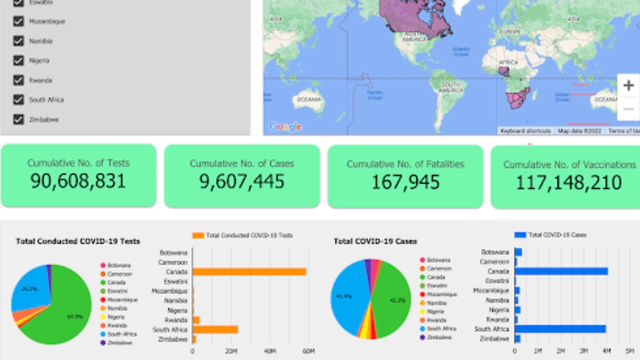
Africa-Canada Artificial Intelligence and Data Innovation Consortium (ACADIC)
Disaster Preparedness and ResponseAbout
ACADIC focuses on strengthening societal resilience to global pandemics and disasters. It aims to improve early detection, warning systems, response, mitigation, and control of disease outbreaks and disasters by making reliable data readily available. Providing this accessible and trustworthy data for public health decisions helps build strong, equitable, and resilient health systems, with a special emphasis on including vulnerable and marginalized populations.
Impact
ACADIC's AI models and data-driven tools are officially utilized by governments for policy decisions, especially during public health emergencies like the COVID-19 pandemic. Their COVID-19 tracking and prediction tools, disseminated through dashboards, gained extensive public visibility. This established trust with governments, which influenced national and provincial policies, and spurred rapid advancements and international collaboration in public health.
Responsible AI practices
ACADIC ensures its AI tools and interventions are practical and context-sensitive by integrating race and climate justice, citizen science, and participatory research insights. This approach directly addresses the disproportionate impact of pandemics and disasters on vulnerable communities in Africa. The consortium fosters accountability and oversight throughout the AI lifecycle with interdisciplinary teams including public health experts, community stakeholders, and policymakers. Local capacity building and interdisciplinary, community-driven research are prioritized. Additionally, continuous monitoring and regular updates of AI systems are implemented to maintain ethical and societal alignment.